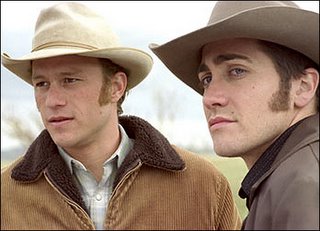Okay. This is prolly a rather liberal Christian perspective.
Rev Yap, the first Asian Bishop of the Methodist Church shares his beliefs and journey in affirming gay Christians in a two part interview:
first part and
second part.
Selections from his talk:
"Legend suggests to us about the birth of the Christ Child in a lowly manger. He was marginalised there, yet there were those who accepted him. Three Wise Men travelled from afar to the place where he was and brought gifts. Simple shepherds left their flock by night and came to adore him.
For gay people you have, and continue to experience rejection and marginalisation and you find security in your manger. The Jesus whose birth is being celebrated knows your condition and shares your anxiety. He did not remain in Bethlehem. He came out into the world to face the opposition and made the difference in the lives of people."
"When the Bible condemns the “homosexuality” of the Greco-Roman society, it was condemning all forms of ancient pederasty, not modern homosexuality. We would be violating the historical context of these texts if we failed to account with the truth that homosexuality in our historical context is different from that which occurred in the Greco-Roman world. Homosexuality today may be a sin in the eyes of some, but you cannot prove it by referring to biblical texts that are condemning pederasty and not homosexuality."
"Those of you who are Christian claim that the churches teaching same-sex attraction is based on the Bible. So they lift up and quote certain chapters and verses from the Bible associated with this issue and regard them as divine truth revealed by God. The Bible is a difficult book written by inspired men and women of faith believing that it was revealed to them. At one time they even claim that it was dictated by God and they just recorded it. Soon it was realised that it was not dictation but interpretation of what they believed to be God’s revelation."
"The interpretations of the Bible from the outset reflected also the historical and cultural situations which prevailed then and continue to do so in the work of those who study the Bible today. Our first task is to try to understand what is meant when it was written and how it relates to us in our contemporary setting."
"The Greek and Roman culture influenced those who wrote the New Testament and coloured their reactions to pagan temple prostitution and sexual acts.
Let us look at 1 Corinthians 6:9. The two Greek words malakoi and arsenokoitai have been translated differently at different times in different versions of the Bible in English. The King James Version in 1611 regarded them to mean those who are effeminate and abusers of themselves with mankind, which was close to the Greek meaning.
The original Revised Standard Version (the New Testament first appeared in 1946) was the first translation ever to use the word "homosexual.” It translated the two words to mean homosexuals or sexual perverts. Then in 1978 the New International Version translated them as male prostitutes and homosexual offenders. It was the New Revised Version in 1989 which renders them as male prostitutes and sodomites. It must be noted that the word homosexual was not used in the earlier period. It was in 1180 that the word sodomy was first used. There is no such word as "sodomite" in the original languages (Ezekiel 16:49-50 describes the sin of Sodom as pride, gluttony, not caring for the poor and needy).
Roman culture which expected people to engage in sex with both men and women. The majority of people, then as now, had a heterosexual orientation. Thus, to participate in same-sex behaviour, and to meet society's expectations, they would have had to disregard their sexual orientation. They would have gone beyond their own nature. "The resulting activity was "unseemly" and an "error" only because the men were heterosexual by orientation. Again, it was their attempt to violate their own nature, that is, their attempt to alter the orientation God created them with, that Paul was addressing... The bottom line is, God created each of us with a sexual orientation. To attempt to change it is, in effect, telling God that He created us wrong. The creation (us) does not have the right to "re-create" itself."
"The situation to the ancient Romans is similar to the situation that homosexuals find themselves in today: society expects them to be heterosexual, and to engage in sexual activity with persons of the opposite gender -- even to marry. And so, many gays and lesbians go against their nature and try to pretend to be heterosexual.
The NGPA also notes that Paul referred to this as an "error”: a mistake, not a sin."
"All the religious, historical, social and cultural factors must be taken into account into reading and interpreting specifically the few Biblical texts regarded to be related to the issue of same-sex attraction. Just to quote the words of the Bible without looking at the context and the traditions related to them is just not enough and irresponsible."
"Today there is also increasing acceptance of sex as described by James Nelson: God’s primary purpose in creating us as sexual beings is not that of procreation, but rather to give us the desire and capacity to love and to bond with others in intimacy. Thus, theology has given new attention to the insight that sexuality is crucial to God’s design that creatures do not dwell in isolation and loneliness but in communion and community.
God’s fundamental purpose in creating us as sexual beings was not that we might make babies, but that we might make love. I believe as sexual beings we are concerned with love, intimacy, mutuality, sexuality. Sexual intercourse is exploitative when it is not mutually satisfying or an expression of intimacy and love for one another.
John Boswell in his historical studies revealed that the Early Church did not generally oppose homosexual behaviour as such. The opposition that arose during the third to sixth centuries was due to the demise of urban culture, government regulation on personal morality and church pressures toward asceticism. Hostility appeared only in the late twelfth century.
Marriage was not celebrated by Christian wedding services in church worship until perhaps the ninth century. It was considered as a civil order and not a religious rite or church ceremony before that.
Today, I regard mutuality, intimacy, life-long committed relationships, and sexual pleasure as important values for marital relationships for heterosexuals as well as homosexuals."


